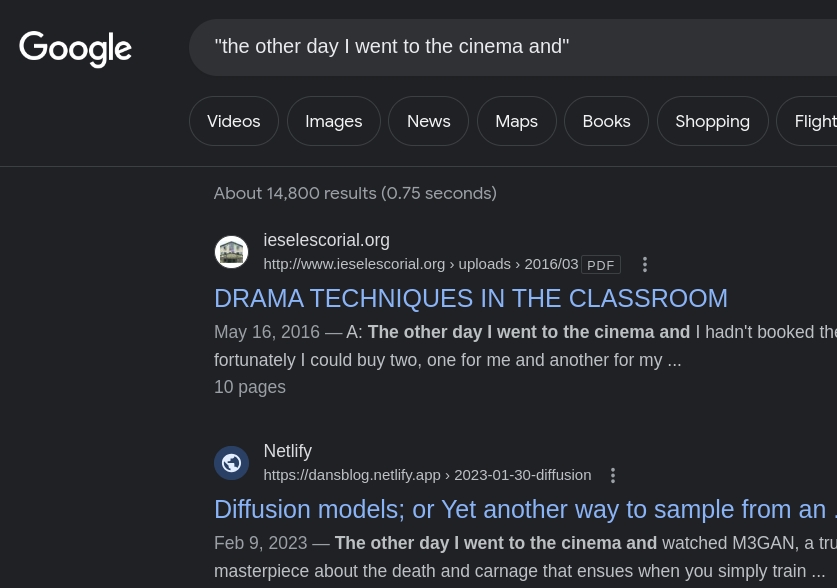One of the Most Useful Language Learning Tricks

A common situation I face when writing in any of the three languages I commonly use (English, Spanish, and Japanese) is not being 100% sure if the phrase I wrote is grammatically correct. This happens to me even in my mother tongue, not just in my non-native languages.
There's a little neat trick that allows you to compare your phrases or sentences with those written by people on the internet.
Googling Exact Phrases
Most people know you can google things like "cats" or "banana" and get corresponding results, but did you know there's a trick that allows you to google exact phrases? That is, not just similar, but exactly the same word by word.
If the phrase you googled gets a lot of hits, it means it's widely used by other people, and it's probably correct. Conversely, if you get fewer results, it usually hints that the phrase is incorrect, at least grammatically.
Simply type a phrase and surround it with double quotes, and that's all.

As a general rule, few or no results means the phrase is probably incorrect, and you may want to tweak it. If there are many results, it usually means it's OK.
Note that English has a huge population of non-native speakers, so you may find some grammatically incorrect phrases that are also widely used.
Using Wildcards
You can also use wildcards when you're unsure what to put between two words.
The prompt "I'm raising * cat" returns results containing "I'm raising a cat," among others.

Language Learning
This trick can be used for language learning as well, especially for the output aspect of it.
When you are trying to produce a sentence and are unsure what article, preposition, etc., to use, you can add a wildcard and use phrases similar to the one you are trying to produce.
Suppose you are trying to produce a phrase containing an uncommon word. In that case, you can replace that word with a wildcard and try to find a more generic phrase or sentence. Then you can just replace back the noun you first intended to use. An example of this would be if you want to say the phrase "[...] will colonize Pluto and live there" but are unsure if it's grammatically correct or not (in this case, it's correct), so you can just google "will colonize * and live there" and verify whether the phrase is correct or not. In this case, you'll get results with the wildcard but not with "Pluto."
You can also use this trick to learn phrases related to the grammar structure you're currently studying. This is useful when you want to find sentences that are interesting to you or relevant to the field you want to use the language in, rather than simply copying the phrases from a textbook, which may be irrelevant to you.

